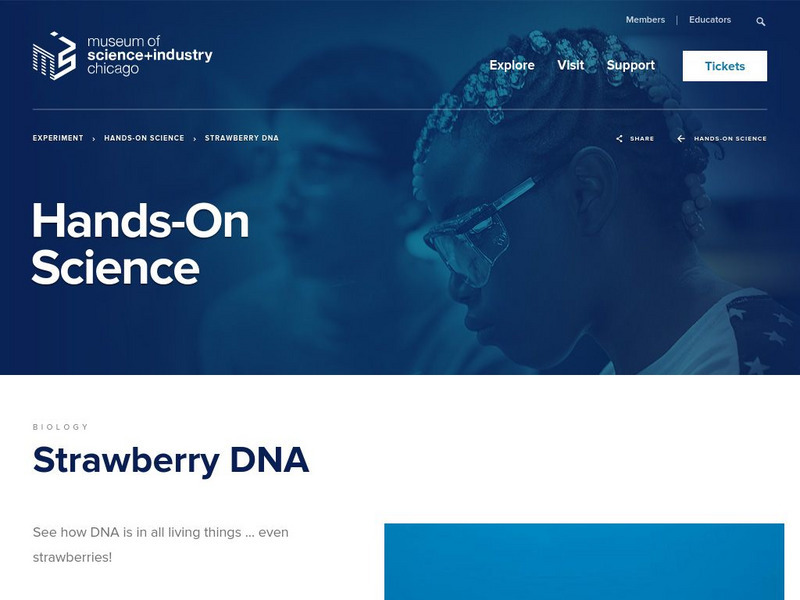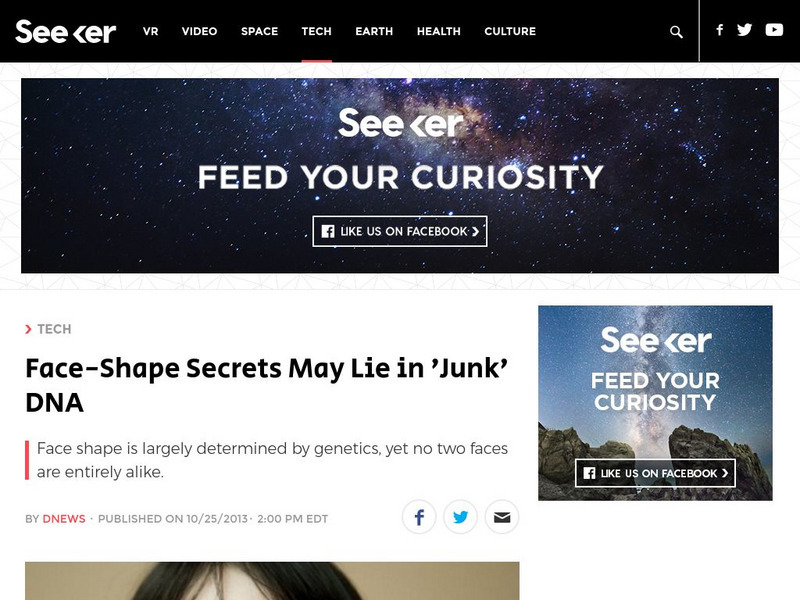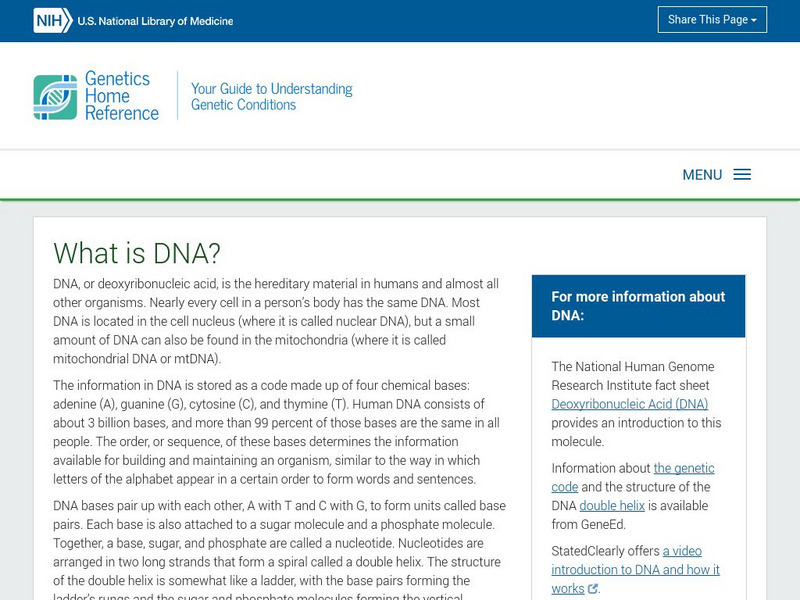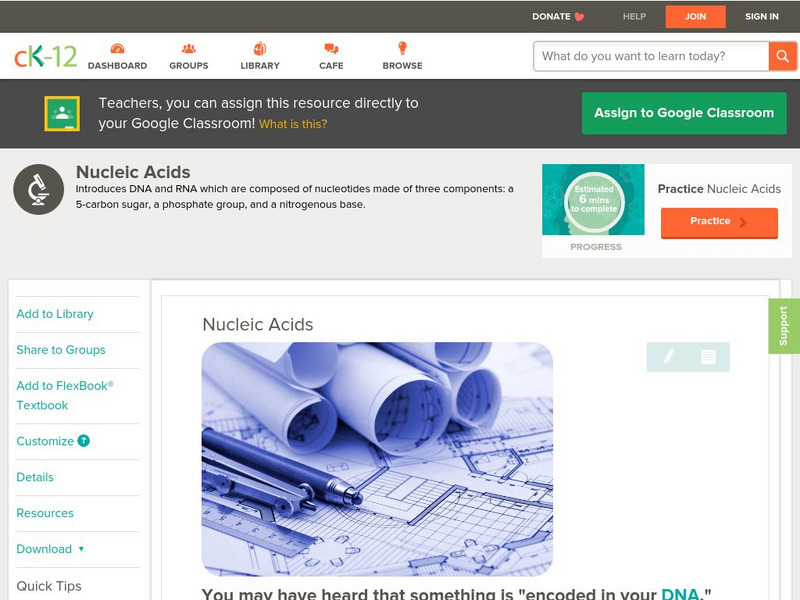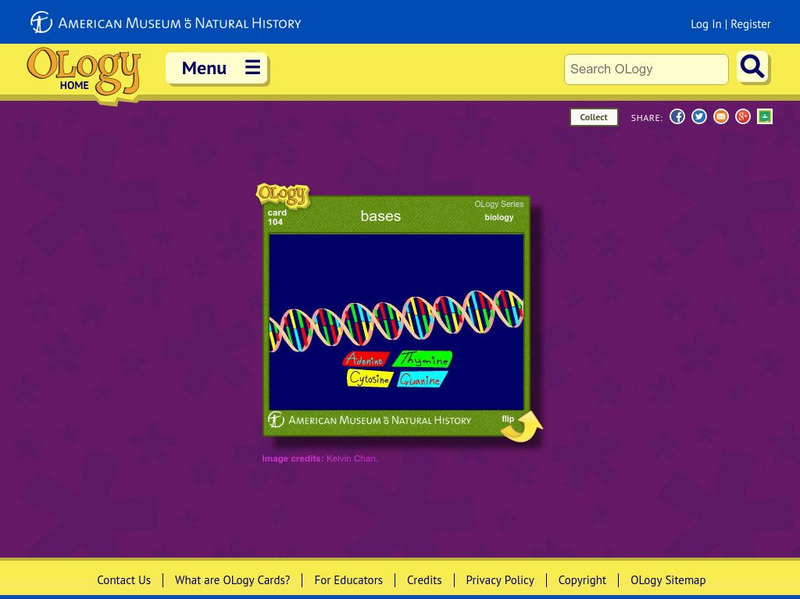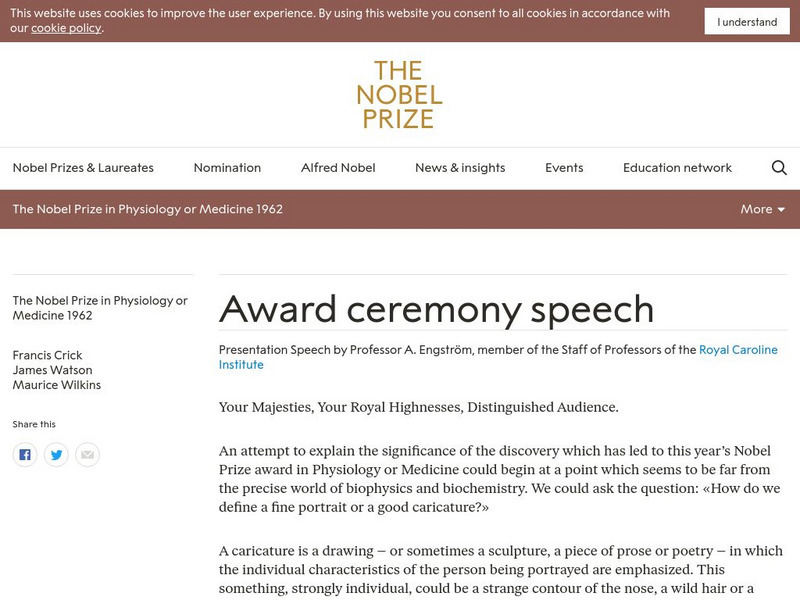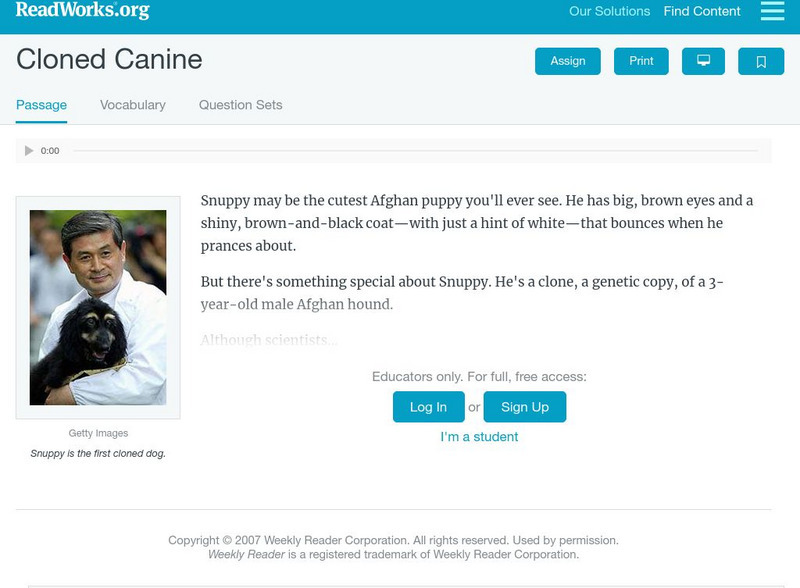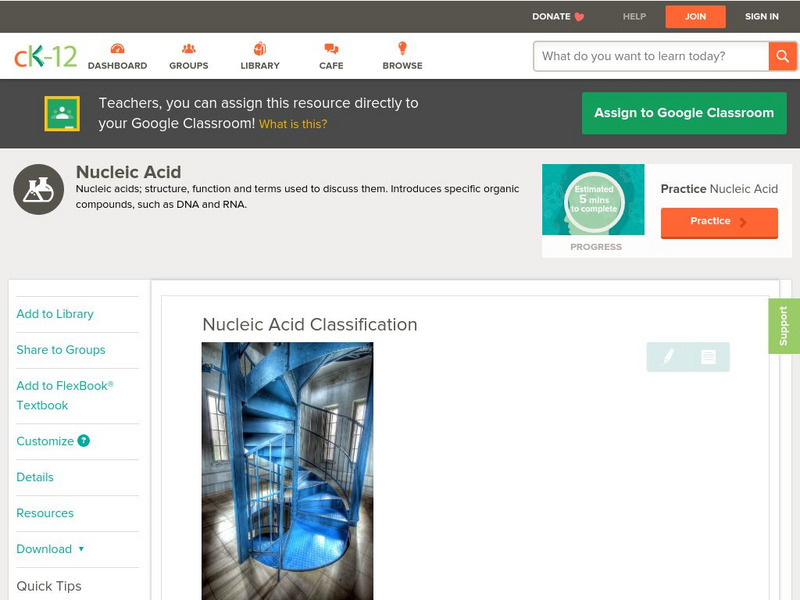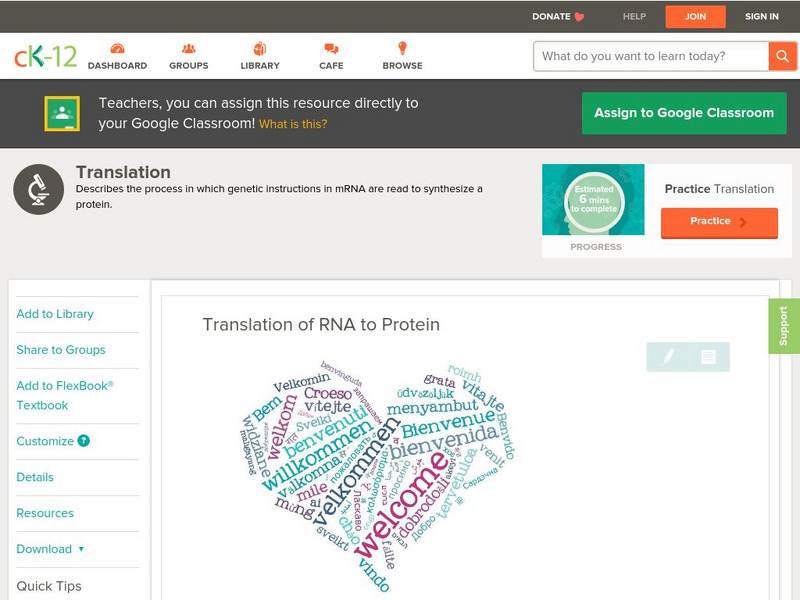Hi, what do you want to do?
Museum of Science
Museum of Science and Industry: Online Science: Activities: Extract Dna
An experiment where students remove DNA from strawberries using everyday materials.
Seeker
Seeker: Week of 10 28 13: Face Shape Secrets May Lie in 'Junk' Dna
Article reports that the secret to differences in face-shape may be found in the non-coding sequences of DNA, also known as "junk" DNA.
National Institutes of Health
U.s. National Library of Medicine: What Is Dna?
Scientific information about the hereditary material in all living things, DNA. Also includes links to fact sheets for quick reference.
CK-12 Foundation
Ck 12: Biology: Chromosomes
[Free Registration/Login may be required to access all resource tools.] An introduction to chromosomes.
CK-12 Foundation
Ck 12: Biology: Nucleic Acids
[Free Registration/Login may be required to access all resource tools.] Discusses the structure and role of nucleic acids.
CK-12 Foundation
Ck 12: Biology: Rna
[Free Registration/Login may be required to access all resource tools.] Overview of RNA and its three main types.
CK-12 Foundation
Ck 12: Transcription Factors Advanced
[Free Registration/Login may be required to access all resource tools.] This article complete with labeled diagrams, key vocabulary terms, and review questions explains the different factors involved in transcription.
OpenStax
Open Stax: Lydia E. Kavraki: Protein Folding
This module introduces students to the problem of Protein Folding, its importance, and current computational methods used to attack its complexity.
Cold Spring Harbor Laboratory
Cold Spring Harbor Laboratory: History
Founded in 1904 this site traces the advances in the study of genetics from then to the present time.
Other
Digital World Biology: Blas Ting Through the Kingdom of Life
Use BLAST to identify unknown sequences. GenBank contains over 3 million sequences, with over 14 billion nucleotides. BLAST can be used to compare an unknown sequence to all the sequences in the database, and find sequences that match....
American Museum of Natural History
American Museum of Natural History: Dna Base Pairs O Logy Card
Flip this interactive OLogy card to find questions and answers, fast facts, and other bite-size pieces of information to help you understand DNA bases A, T, G, and C.
American Museum of Natural History
American Museum of Natural History: Human Genome Project O Logy Card
Flip this interactive OLogy card to find questions and answers, fast facts, and other bite-size pieces of information to help you understand important characteristics of the Human Genome Project.
Nobel Media AB
The Nobel Prize: James Watson Biographical
Read about James Dewey Watson, the co-recipient of the 1962 Nobel Prize in Medicine for his work with Franice Crick on decoding the structure of DNA. This article includes information on both Watson's personal life and public career.
Nobel Media AB
The Nobel Prize: The Nobel Prize in Physiology or Medicine 1962 Award Ceremony
Here you can find the full text of the speech, by Professor A. Engstrom, presenting the 1962 Nobel Prize in Physiology or Medicine to Maurice Wilkins, James Watson, and Francis Crick for their discovery of DNA's structure. The speech...
Read Works
Read Works: Cloned Canine
[Free Registration/Login Required] An informational text about the first scientists to successfully clone a dog. A question sheet is available to help students build skills in reading comprehension.
Read Works
Read Works: Two Sets to Build Difference
[Free Registration/Login Required] An informational text about Charles Darwin's research on trait variations in the Galapagos Islands. A question sheet is available to help students build skills in reading comprehension.
CK-12 Foundation
Ck 12: Biology: Genetic Code
[Free Registration/Login may be required to access all resource tools.] Introduces the genetic code and how to read it.
CK-12 Foundation
Ck 12: Physical Science: Nucleic Acid Classification
[Free Registration/Login may be required to access all resource tools.] Definition of nucleic acids and their structure and function.
CK-12 Foundation
Ck 12: Biology: Dna, the Genetic Material
[Free Registration/Login may be required to access all resource tools.] Describes how DNA was discovered.
CK-12 Foundation
Ck 12: The Hereditary Material
[Free Registration/Login may be required to access all resource tools.] Informational text about the hereditary material in bacteriophages. After reading the text, review the key vocabulary terms and answer some review questions.
CK-12 Foundation
Ck 12: Biology: Translation of Rna to Protein
[Free Registration/Login may be required to access all resource tools.] Discusses translation in protein synthesis.
CK-12 Foundation
Ck 12: Life Science: Translation of Rna to Protein
[Free Registration/Login may be required to access all resource tools.] The mRNA, which is transcribed from the DNA in the nucleus, carries the directions for the protein-making process. mRNA tells the ribosome how to create a specific...
CK-12 Foundation
Ck 12: Life Science: Human Genome Project
[Free Registration/Login may be required to access all resource tools.] A person's genome is all of his or her genetic information. In other words, the human genome is all the information that makes us human. Learn more about the human...
CK-12 Foundation
Ck 12: Biology: Central Dogma of Molecular Biology
[Free Registration/Login may be required to access all resource tools.] Overview of the central dogma of molecular biology.





